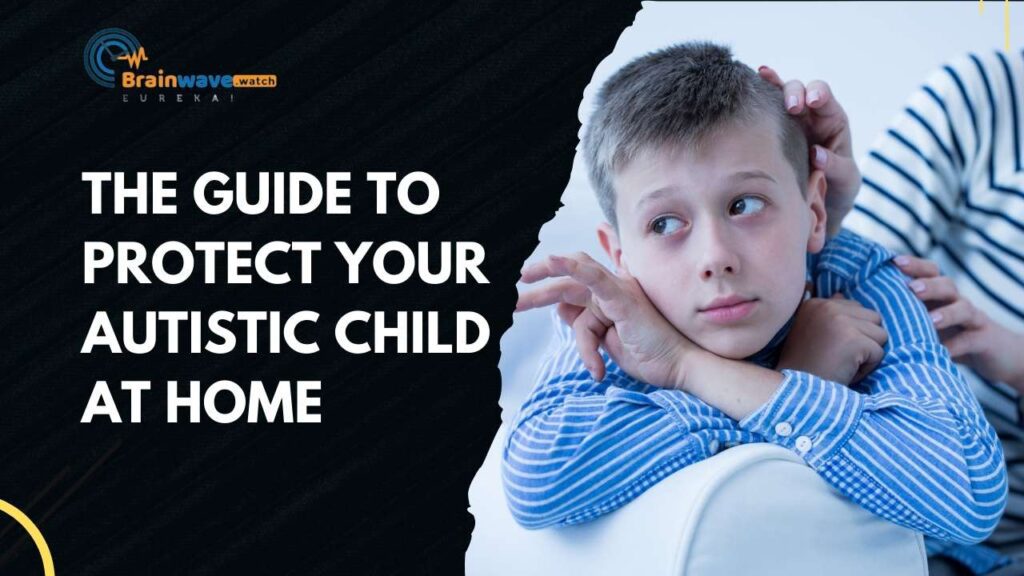The parent of a teenager with autism. It can be hard to understand what they’re saying when you don’t know the culture or language they speak, but it’s not impossible. Here are some common ways that teens with autism experience the world:
They are often self-absorbed and have difficulty empathizing with others.
You’ve probably heard the phrase “living in your own world.” This is a common way to describe how teenagers with autism are often self-absorbed and have difficulty empathizing with others.
The reason for this is because they don’t understand the feelings of others, or that other people have feelings at all.
They may not be aware of how their actions affect others, either because they don’t see them or because they think everyone sees things differently than they do (for example, when someone tells you something isn’t true).
Read also: Autism in Teenagers: Daily Challenges And Solutions
Their relationships may be superficial or inappropriate.
You may notice that teenagers with autism have a hard time understanding social cues, especially when it comes to eye contact.
They may not make eye contact or look at you when they’re speaking to you, even if they’re happy or excited. This can be confusing for people who are used to talking with one another face-to-face—but being able to read body language can be helpful in understanding how someone else is feeling or thinking.
If your teenager has trouble reading the emotions of others around them (and this applies even if those people are close friends), then take advantage of opportunities where there aren’t any distractions: family dinners, parties at friends’ houses—these are good places for teens with autism because they allow them more time alone than usual so that they can rest their eyes and think about what’s going on around them instead of being bombarded by too much sensory input from other people all at once!
They may not understand how to interact socially.
For teenagers with autism, the world can be a confusing place. They may not understand that other people have different interests and opinions, or are sensitive to criticism.
If you tell them something, they might not understand why it’s important for you to say it—or even why there’s anything wrong with what they did in the first place!
The same goes for their own needs and expectations: if someone else says something negative about them (even if it isn’t true), it could make your teen feel rejected or ashamed of himself/herself; this will make him/her want to withdraw from social interaction entirely so that he/she doesn’t have any more bad experiences like those two examples above.
They may avoid eye contact.
Teenagers with autism may not be comfortable making eye contact. They may feel that they are being judged by the person they are looking at, and this can make them uncomfortable.
In addition, if you ask a teenager with autism to look at something or someone, it is likely that he or she will avoid doing so as much as possible because he or she does not know how to do so properly.
Read also: How Is Someone Affected by Autism Spectrum Disorder?
When they talk, they may ramble on a seemingly endless loop about topics they don’t know much about.
As a teenager with autism, you might seem like a good listener. And you are! When it comes to talking about things that interest you and making friends with others at school, though, it can be hard for your parents or teachers to know what’s going on in your head.
It’s normal for kids on the spectrum to ramble on about their interests—they might not know when to stop talking or change the subject if they keep talking about one thing long into another conversation (or even if they don’t).
They may also have trouble understanding that other people have different interests and priorities than theirs; this means they might not respond well when asked questions by adults who aren’t familiar with how people with autism process information.
Finally, teens with autism may lack awareness of social cues like eye contact; this makes it difficult for them to follow directions from adults during conversations or job interviews.
They may get fixated on certain topics or subjects.
One thing that can be hard to get off topic is when you are talking to someone with autism. They may have difficulty switching from one topic to another, so it can feel like they’re not listening or paying attention.
This is especially true if they’re fixated on one thing and refuse to talk about anything else.
If this happens, try saying something like “I’m sorry I didn’t mean anything by asking about your brother” or “I know this is kind of personal but what do you think of my shirt?” You might need more than one attempt before your friend starts talking again!
They may have trouble expressing their needs or explaining how they feel.
As a result of their difficulties with communication, teenagers with autism may have trouble expressing their needs or explaining how they feel. They may not know how to ask for what they need or explain why something bothers them.
Teenagers with autism also may have difficulty understanding other people’s feelings and needs. This can make it difficult for them to express their own emotions and anticipate what others are thinking or feeling in social situations.
They might lack the ability to recognize sarcasm and jokes as well as other types of humor that normal teens understand easily because they don’t see those things all the time like most kids do (and even if they did see them regularly, there’s no guarantee that this would help).
They often have difficulty expressing emotions and moods.
Teenagers with autism may have difficulty expressing emotions and moods through facial expressions and body language, either because they don’t feel the emotion or because they don’t know how to show it.
- They may not be able to read facial expressions and body language as easily as others do.
- They may not know how to express their feelings in words or actions.
- They may also have trouble understanding other people’s feelings, especially when those feelings are negative (such as anger).
It’s not just the words coming out of their mouths that are important — it’s also the tone of their voice and the pitch and cadence at which they speak.
It can help to pay attention to (and imitate) those things if you want your teen to understand what you’re saying. If a teenager with autism is struggling to make himself understood, consider slowing down your own speech so he has more time to process what you’re saying before responding.
The tone of a teenager’s voice is something that can be hard to hear, but it’s important. It’s not just words coming out of their mouths that are important — it’s also the tone of their voice and the pitch and cadence at which they speak.
It can help to pay attention to (and imitate) those things if you want your teen to understand what you’re saying. If a teenager with autism is struggling to make himself understood, consider slowing down your own speech so he has more time to process what you’re saying before responding.
Another thing parents should keep in mind when communicating with teenage boys who struggle with social skills is: body language plays an important role in how people communicate with each other across cultures and societies across time periods as well as within them!
Takeaway:
The takeaway is that autistic people have their own way of seeing the world and understanding it. They may be hard to understand, but they’re not trying to be rude or mean. They just have trouble communicating what they want or need because their brain works differently than yours does.
But don’t worry! If you take the time to get to know your teenager with autism and try new ways of interacting with them, then maybe one day you can say “I understand how difficult it must be for my child when we’re having a conversation.”
Conclusion
You can do a lot to help your teenager with autism learn the skills she needs to navigate life successfully. But the most important thing you can do is be there for her, no matter how she tries to deflect or avoid your company. You might not understand what’s going on inside her mind, but by being supportive and listening carefully, you’ll be helping her get better at sharing herself with others — in ways that could make all the difference in how well she learns about the world around her!








